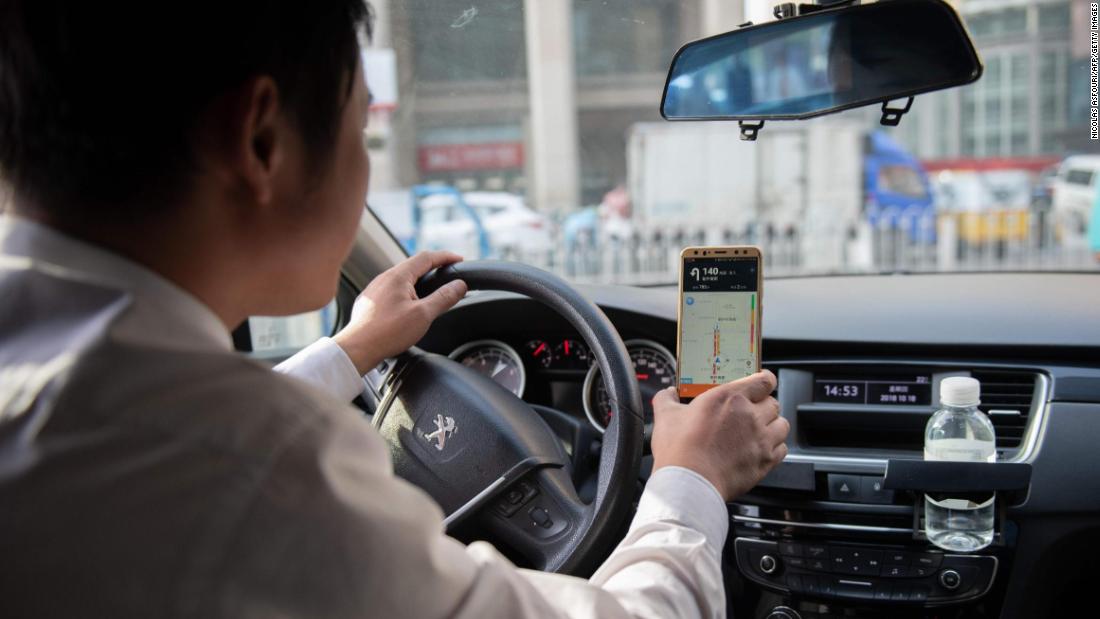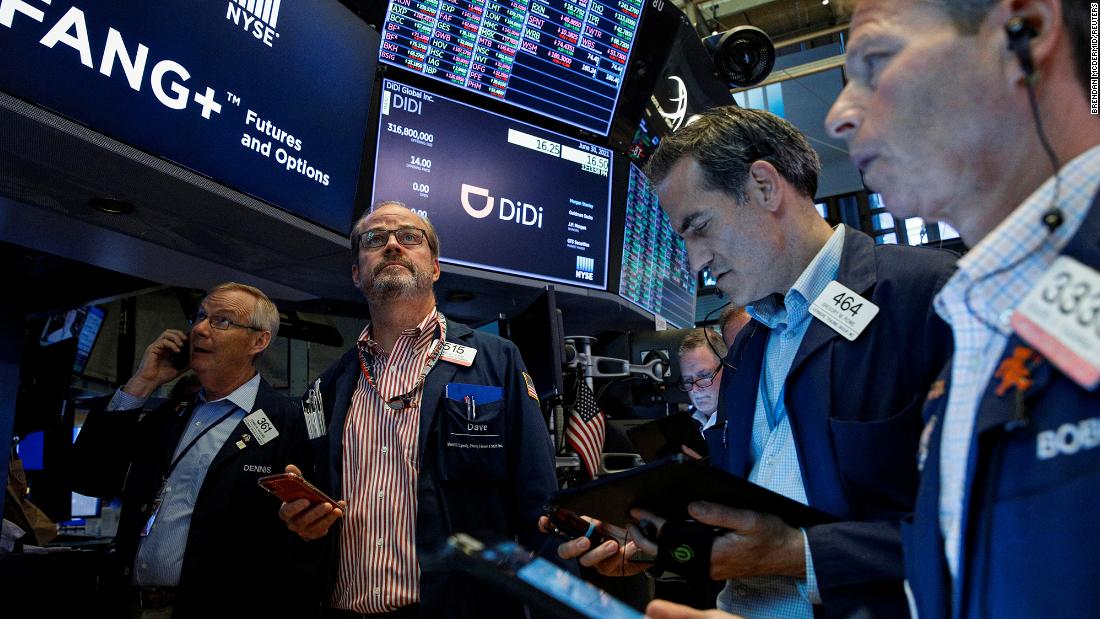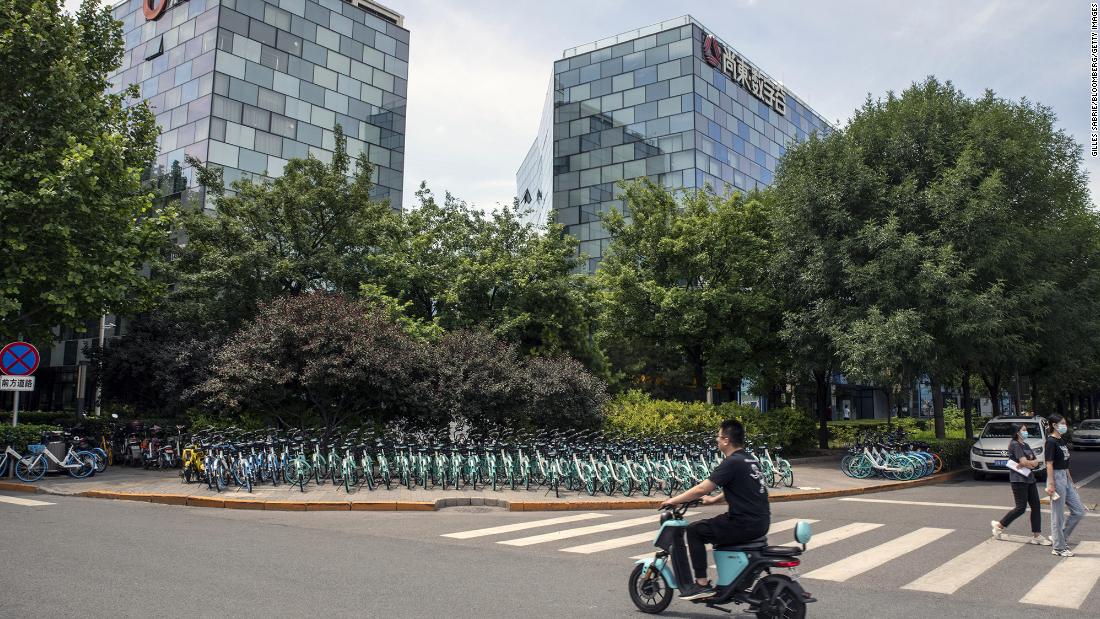He pushed Uber out of China. Then he got too big for Beijing

In China, Cheng Wei created a world-class ride-hailing service that even Uber couldn’t match.
Didi, on the other hand, has gone afoul of Beijing because of its hazardous expansion and dominance strategy, which culminated in a disastrous IPO this summer. Now, the company’s senior executive must strike a delicate balance between appeasing domestic regulators and international investors while fending off severe competition.
The youngest CEO of one of the top Tech businesses in China is Will Cheng, 38. In the nine years after Didi’s inception, he’s been busy: Cheng has defeated a slew of formidable opponents and gathered about 160 million monthly active users in China alone by the first quarter of this year, roughly double the number of users that Uber has globally.

However, the ride-hailing behemoth is now in jeopardy. It’s one of the most visible targets of China’s broad anti-tech and anti-private-sector crackdown, which appears to have no end in sight. Since regulators began investigating the firm, its shares have dropped more than 40%, wiping out $34 billion in market value.
Chinese regulators blocked Didi from app stores earlier this summer as part of an investigation into its data privacy and gathering practices, putting the company’s future expansion in jeopardy. Unless Didi can placate the ruling Chinese Communist Party, the company’s stronghold on the Chinese market may be broken.
Cheng was not available for an interview with Didi, and the company did not answer queries regarding Cheng or its operations.
A rapid and forceful ascent
Cheng worked at Alibaba as a sales manager before founding Didi in 2012. He moved fast from an entry-level salesperson earning roughly $200 per month to become the company’s youngest regional manager in just seven years.
According to a feature published in June in the Chinese financial news portal of the Business Times, Cheng founded Didi because he was fed up with being unable to secure a taxi during a business trip. The “pain” prompted him to consider how to resolve the issue.
“What about the app for riding hails so that fewer poor losers soaked in the rain?” “I wondered how to make a ride-hailing app, so fewer poor losers are sweeping in rain? According to the media site, Cheng recalled a dismal incident in Beijing when he couldn’t hail a cab for hours during a storm.
Cheng launched Didi from Wange Gang, an Angel Investor that monitored Cheng at Alibaba, with a total of just 100,000 yuan (about 15,000$) of his own money and another 700,000 yuan (about 110,000$). When Didi went public, Wang’s first investment was worth a billion dollars.

Didi’s rise has been rapid, similar to that of its tech peers Baidu (BIDU), Alibaba (BABA), and Tencent (TCEHY). Ride-hailing was still unregulated in China when Cheng established Didi, and taxis dominated the industry. As government-approved taxi businesses lobbied to limit the issuance of licenses, cab shortages were widespread. As a result, ride-hailing apps like Didi have exploded in popularity.
Unlike traditional taxis, ride-hailing businesses do not need drivers or automobiles to have expensive and difficult-to-get licenses. Many cities accused ride-hailing apps like Didi of conducting illegal taxi services before the market was regulated five years ago. Didi claimed it was simply offering a platform for users to connect with cars owned by rental businesses or other third parties.
Didi had figured out how to get across this murky territory. To keep Didi drivers on the road and retain customers, it even paid them for fines imposed by authorities for breaking local rules.
In a letter to employees, Cheng and business president Jean Liu stated, “Reform and innovation always come at a cost.”
At the time, China’s central government welcomed rapid innovation, and ride-hailing was never formally prohibited in the country. Ride-hailing was finally permitted in China on July 28, 2016. Didi acquired Uber China a few days later.
In a message to the workforce after buying a “great rival” Cheng and firm president Jean Liu lauded the legitimization as a milestone. They said that the company’s service had been halted more than 30 times in various locations. And that “countless drivers” had their cars impounded and fined, but that the country had now welcomed the “dawn of reform.”
They remarked, “There is always a cost to reform and inventiveness.” “The smart travel revolution has only just begun… [We aspire to be] a world-class technology enterprise!”
Didi proceeded to consolidate its grip on the Chinese ride-hailing sector after 2016, and by 2018, it controlled 90 percent of the market. The company expanded to Australia, Brazil, and Mexico that year, focusing on customers outside of the United States.
Its meteoric rise, however, was not without controversy. Didi had to halt operations at its carpooling subsidiary after two women passengers were slain by Hitch drivers in 2018. Following the murders, the government put pressure on Didi to reveal real-time data about its vehicles and drivers with police, which the firm had previously refused to do. It ultimately made concessions in late 2018.
Regulators cause problems
This year, such pressure was a forecast of Didi’s issues. Beijing has taken a hard line against internet companies it believes have become too large and powerful, resulting in a sweeping crackdown that has impacted computing, education, entertainment, and other industries.
The Communist Party is moving aggressively under President Xi Jinping to rein in unbridled private enterprise and send a strong message that Chinese organizations must work in lockstep with the government. Companies that have grown too big too fast will be monitored to ensure that they are in line with government priorities.
Didi had difficulty with a $4.4 billion IPO in New York, despite proof that Beijing had been unhappy. According to Bloomberg, regulators were concerned about data security and advised that Didi delay its listing.
Cheng went forward with the IPO, but like other Didi executives, he kept a low profile during the event, which coincided with China’s Communist Party’s 100th anniversary. He didn’t announce the news on the company’s Chinese social media sites or ring the opening bell.

The Chinese Cyberspace administration barred Didi from app stores two days later, forbidding the company to register new users. The internet watchdog accused the company of illegally acquiring and misusing user data, including a treasure trove of locations and routes including sensitive information on Chinese traffic, roads, and people.
“According to the authorities, Didi has become too large for control”. Obviously, it wants to stop the expansion of Didi in China”. Sino Auto Insights, a Beijing-based company, founded and operates Tu Le. The resource reads, “An illustration of how nobody can fail to live up to the Party is also the government.”
Didi also confronts resentment and skepticism from international investors.
Politicians and investors in the United States urged the US Securities and Exchange Commission to look into Didi’s disastrous IPO in the country. According to Eurasia Group analysts, such requests “would at the very least raise political pressure” on the regulator to execute a recent statute that prohibits corporations from trading on US stock exchanges if they refuse to reveal their books to US accounting experts.
Cheng’s choice to proceed with the IPO appeared perplexing or risky to many commentators.
According to Alex Capri, a research fellow at the Hinrich Foundation, “no Chinese corporation can openly confront the Chinese Communist Party and expect leniency.” “[Didi] is far too big and strong for its own good, and it has already crossed a line with the Chinese authorities.”
Because it had raised billions of dollars from venture capitalists, the corporation may have had some justification in the form of investor pressure to list the company. According to Winston Ma, an adjunct professor at the New York University School of Law, another reason for the urgency was a new data security law that went into effect in September and requires all Chinese entities to obtain government approval before providing China-based data to foreign judicial or law enforcement agencies.
A ‘competitive market’
Didi continues to operate in China because users who downloaded the app before the July ban are still able to use it. And the business claims to be conducting “regular operations abroad”. Hundreds of applications, on the other hand, are rapidly expanding, advertising, and giving substantial discounts to take advantage of Didi’s troubles and chip away at its market position.
Meituan, a former Didi rider, for example, resurrected her own ride-hailing app after Didi got out of stores, providing new customers coupons and waive a new driver’s commission for one week. Other Alibaba and Geely Auto-backed services offered cash incentives or discounts.
“This is a tough market,” Sino Auto Insights’ Tu remarked. “Everyone wants a piece of this multibillion-dollar pie, even traditional automakers.”

Nonetheless, rivals are unlikely to completely challenge Didi’s supremacy, according to Tu. He said that Didi has spent tens of billions on customer acquisition and that ride-hailing is a difficult sector to break into without a lot of cash. Because customers aren’t usually loyal to a brand if someone else can undercut their costs.
According to preliminary government data. Didi’s existing company did not suffer as a result of the ban, even if it was unable to register new users. According to China’s Ministry of Transport, the firm handled 13% more orders in July than it did in June.
Tu stated, “The government simply wants a healthy market, not Didi’s demise”. That he expects Didi to thrive, albeit with a “less ambitious” expansion strategy.
Capri, a research scholar at the Hinrich Foundation, was less positive about Didi’s prospects, especially as long as it continues to trade in the United States. “Some of it may be nationalized,” he speculated”. In addition, the Beijing group will actively fund smaller competitors in order to level the playing field and gain control of larger firms.”
“The longer it remains listed on the US market, the more ire it will arouse in Beijing,” he continued.


